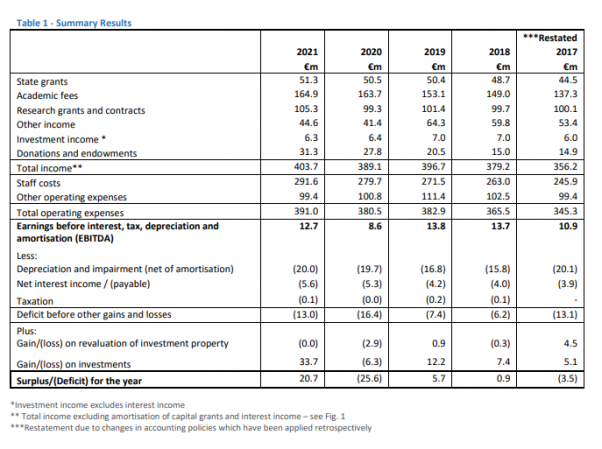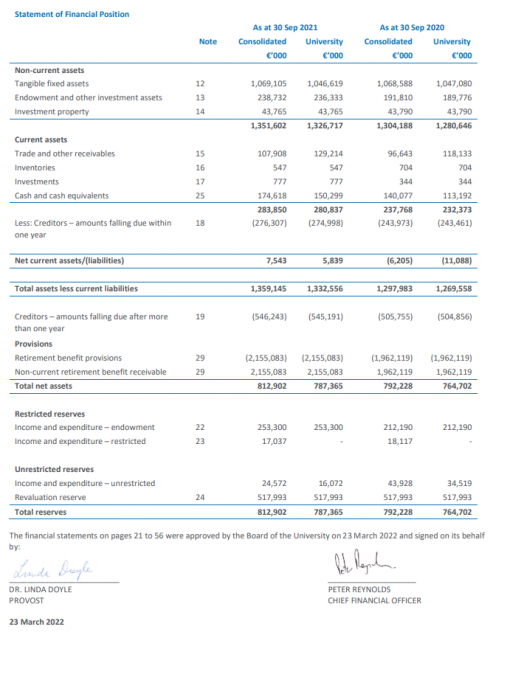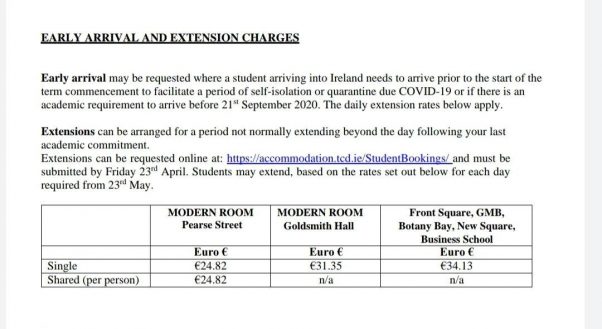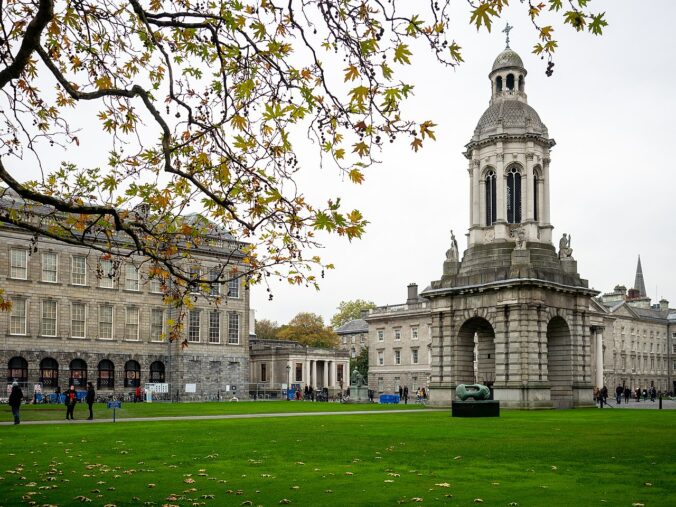WHERE IS OUR MONEY GOING?
The accounts of Trinity College Dublin for 2020-2021 state a surplus of € 20.7 million.
If the aforementioned figures are correct, what on earth is a university doing to make a € 20.7 million surplus a year?
Who is profiting from these surpluses and reserves, and how are they being spent?
The topic of this flyer is commercialization. While senior management have undoubtedly played a huge role in driving commercialisation of the sector, the government is also at fault. The philosophy of the private sector applied onto education is at the root of many issues that we face, such as underinvestment in mental health supports, discriminatory accommodation strategy, fee increases and the lack of protective measures for students.
Tuition fees for third-level were abolished in the mid-1990s, however, this has resulted in the government being tempted to slowly cut funding.
While student numbers increased, so did taxpayer’s investments into universities, but the overall money available per-student has been decreasing. For example, spending per student at third-level decreased from €10,806 in 2007 to €7,089 in 2016, a drop of 34.4%.
This is despite the fact that between 2007 and 2016, public spending on education increased by 5.1%. It is simply not enough, and this has resulted in the corporatization of universities, where they have to make up for the loss of state funding by operating like for-profit businesses, cutting courses and downsizing services like counselling.
TCD ACCOUNTS STATE A RESERVE OF € 812 MILLION

WITH € 174 MILLION IN CASH…

Money-making is at the heart of these pursuits. So, for example, with the lack of hybrid learning, it can be tied to factors such as:
This is otherwise known as the profit motive. Let’s take a look at a couple more examples of how this affects us as students.
Accommodation
The profit from Trinity residences, including Trinity Halls, Kavanaugh Court and much of the on-campus accommodation, totaled around € 10 million in 2021. The rent for a student to stay in one of these residences can be above € 10,000 a year. With that in mind, the extortionate pricing of student accommodation has to come under serious scrutiny. It’s time we start asking why the accommodation is being run at such levels of profit. The only charges, if any given the already incredibly high student fees, should be just enough to cover maintenance and repairing costs. Nothing more.
It is also worrying that students have no rights in these accommodations, enjoying only the legal protections that a hotel would have.
Recently, College have sent emails to staff and alumni asking them to rent out digs, which have little to no protections, for tax rebates of up to € 14,000 a year through the neoliberal government’s Rent-A-Room scheme. This will mean that students would have to pay up to that extortionate amount to stay in one of these places.
Perhaps the most obscene display is that while the student rate for the summer – extensions and early arrivals – ranges from € 24.82 to € 34.13 per day, Trinity is clearly exploiting and advertising to vulnerable students sitting reassessment at € 45 a night. This is appalling, and the rate should be reduced, since we should be supporting students doing resits.

Mental Health
Despite the high surpluses being run by Trinity, and the massive reserves which they sit on, many vital student services have been underfunded to the detriment of students. One of the key concerns highlighted by students is the months-long waiting times at College Counselling and Health Services. College should properly fund our welfare supports from the money they control.
Tuition Fee
Year on year, our tuition fees increase. The most recent fee increase is 2.3% over a 4-year period for non-EUs and postgraduate students, with a fee freeze in 2022-2023 but starting in 2023-2024. This will come out to an around 10% fee increase, worth € 2000 to € 5000 euros over the course of study. A non-EU international student in Dublin can already be expected to pay around € 30,000 to € 50,000 just for the tuition fee and rented accommodation. That is insane. To have the audacity to further increase this is beyond comprehension.
Casualization
The term precarious staff refers to any university worker who shares insecure working conditions (these could be teachers, tutors, researchers, cleaners, caterers, hospitality or admin staff) that leave them underpaid, vulnerable and living with the constant risk of unemployment. Casualization refers to the casual forms of employment which leave people in this insecure position. It can also refer to outsourcing. For example, in our College estates 20.5% of all cleaning staff are outsourced, and 14.28% of security staff. The University in total has employed over 2,500 staff on casualized, short-term and hourly-paid contracts, leaving them in a precarious condition. When the institution decides to no longer rely upon its casualized workers, it can dispose of them easily. Student learning conditions are staff working conditions, and we should stand in solidarity with our teachers.
Student Levy
Many, especially postgraduates are struggling. In addition to the Students Levies and Charges (SLC), which includes the Sports Centre Development charge (€120), students pay increasingly large booking fees in order to use those same facilities.
“I play badminton with ~8 other SoP postgraduates every week or so, and we pay €10 per hour per court, with an additional €6 tacked on per hour per court if we bring non-members. And if we want to borrow a badminton racquet? Another €5 per booking, supposedly to dissuade equipment theft. These costs add up quickly and place financial strain on students,” says a student.
It’s not just badminton. The rock climbing wall, the basketball and tennis courts, the classes—anything outside of the pool and weight-lifting facilities—students have to pay extra for it. As if students weren’t already poor enough, and as if we didn’t already contribute to 88% of Trinity Sports Centre (TSC) income.
This is all while the Provost is paid € 800 a day, with the senior management team taking home €2.5 million in just one year in 2020-2021 during the pandemic. It is greedy, disrespectful and unacceptable.
APPEAL TO PROVOST: STOP FEE INCREASES, EXPLOITATIVE RENT AND RESPECT STUDENTS AND STAFF!
APPEAL TO ALL STUDENTS: SUPPORT PROTESTS, PUT PRESSURE ON THE HIERARCHY AND ORGANISE!

Leave a Reply